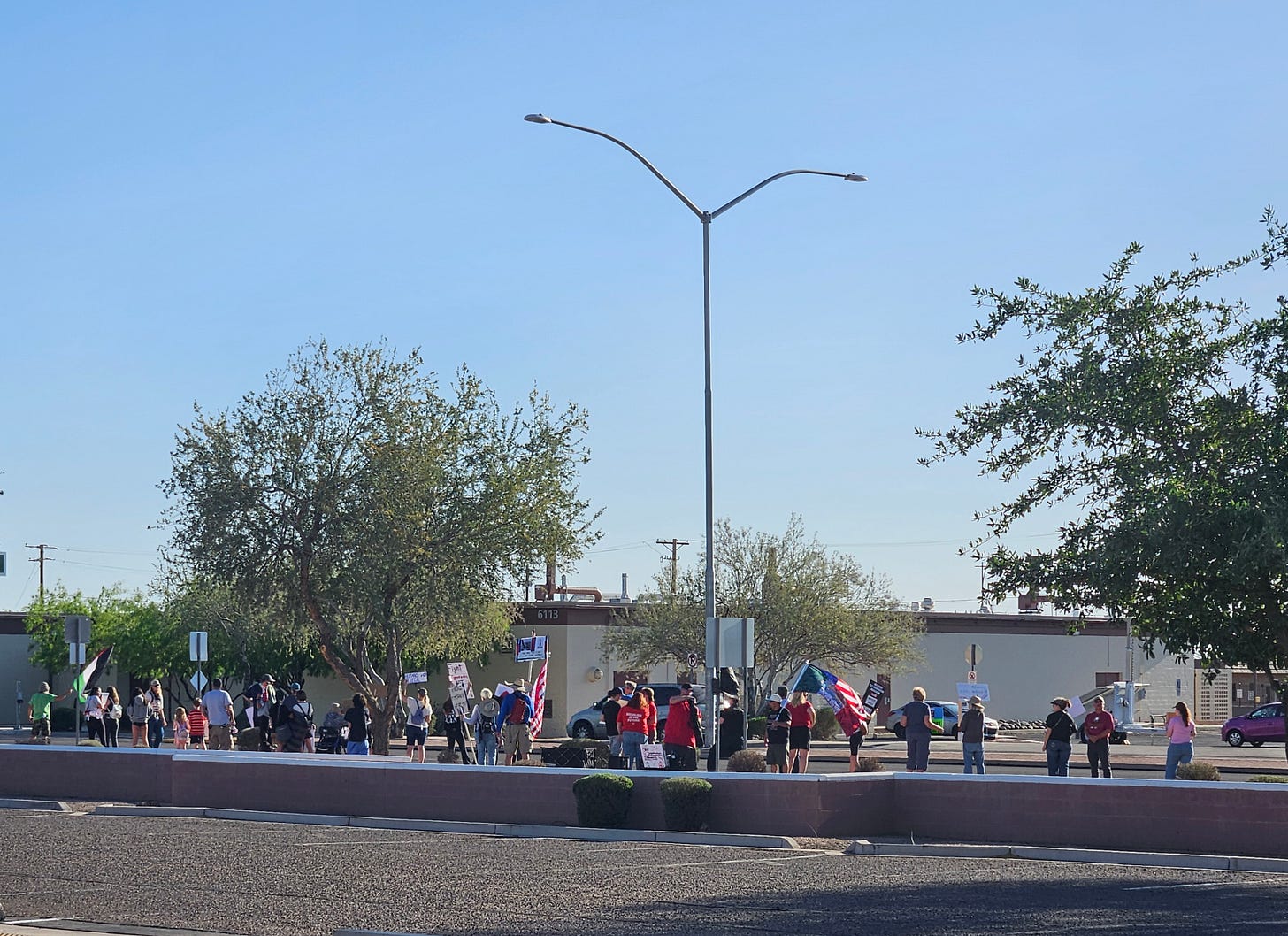From Mesa to Guatemala... and back
Avelo Airlines' first international charter operation since its partnership with ICE and DHS.
On May 19, an Avelo Airlines flight departed Phoenix-Mesa Gateway Airport, stopped in El Paso, and landed in Guatemala City—marking the airline’s first international deportation mission under a new federal contract.
Flight tracking data reviewed by Fourth Estate 48 reveals a growing pattern of charter flights by Avelo Airlines linked to deportation logistics. Since May 12, Avelo has flown more than 30-plus missions involving routes from Mesa to destinations including Alexandria, Louisiana—a frequent ICE charter flight hub used to stage international deportations—as well as Harlingen, Texas; El Paso, Texas; and Guatemala City.
On May 19, one Boeing 737-800 operated by Avelo followed a path typical of ICE removal operations: Phoenix/Mesa to El Paso, then on to Guatemala City, and back to Phoenix/Mesa later that night. Data from Flightradar24 and FlightAware, identifies the aircraft as tail number N804VL, which has consistently flown similar routes since the operation began. While we could not confirm who was on board, the routing and timing strongly suggest the plane was transporting deportees—likely including individuals from both Phoenix and El Paso. Aviation diagrams from both El Paso and Guatemala show the plane avoided public terminals and parked in restricted, non-commercial zones.
Avelo has declined to comment on these specifics. In a written statement, communications manager Madison Jones confirmed that the airline had signed a “long-term charter agreement” with the Department of Homeland Security to operate “both domestic and international” flights, but said they were “not authorized to share details of the contract.”
After pushing for any details to be shared if not the contract itself, Jones replied, “We are not authorized to share those details. I recommend contacting DHS for that information.”
DHS could not be reached for comment.
Flight data shows that since May 12, Avelo-operated aircraft have flown to the following destinations:
Alexandria International Airport (AEX), Louisiana
El Paso International Airport (ELP), Texas
La Aurora International Airport (GUA), Guatemala City
Valley International Airport (HRL), Harlingen, Texas
Harry Reid International Airport (LAS), Las Vegas, Nevada
SoCal Logistics Airport (VCV), Victorville, California
Miramar Marine Corps Air Station (NKX), San Diego, California
Denver International Airport (DEN), Colorado
Reno-Tahoe International Airport (RNO), Nevada
Yakima Air Terminal (YKM), Washington
The Mesa connection: Lease shows quiet buildup
Public records obtained by Fourth Estate 48 show that Avelo signed a $1,000/month lease agreement on April 221 with the Phoenix-Mesa Gateway Airport Authority. The initial term of the agreement is three months, but it is automatically renewable on a month-to-month basis thereafter, but it includes a cap: it cannot extend more than three additional months without further action by either party. That means unless the contract is formally extended, Avelo’s access could quietly expire—or be quietly renewed—by October 22.
The lease contains no escalation clause, meaning the $1,000 monthly rent rate remains fixed unless renegotiated or terminated by either party. This structure gives Avelo long-term access to the airport’s secure operations area at a consistently low cost, even as it ramps up deportation activity tied to its federal contract. The lease, for a facility at 6145 S Kent St., Mesa, grants Avelo access to the Airport Operations Area (AOA)—the secured side of the airport often used for charter and government operations.
The lease, which Avelo described as intended for “parts and materials storage,” was executed just weeks before the deportation flights began. But that description is misleading. The agreement grants Avelo access to the airport’s secure operations area, and records confirm the airline has since used Mesa as a base for federal deportation flights.
Internal airport emails also reveal awareness of the program and its potential fallout. On April 23, Airport Executive Director J. Brian O’Neill emailed city officials to warn:
“We believe a recent announcement by Avelo Airlines that they will be conducting ICE deportation flights out of Mesa starting May 12 is the catalyst for the protest.”
About 30 demonstrators gathered outside the terminal shortly afterward on April 25. A photo circulated internally but no official statement was made by the airport or city.
In response to this reporting, a spokesperson for Phoenix-Mesa Gateway Airport emphasized that Avelo’s lease pertains only to a non-aeronautical building used for storing parts, and is not directly tied to the deportation flights themselves. The airport confirmed that Avelo’s charter operations are based out of a separate, privately owned building on the secure side of the airport. Officials also noted that ICE has operated at Mesa for more than 20 years and that the airport is obligated to treat all users equally under federal grant requirements.
What remains unknown
Despite a Freedom of Information Act (FOIA) request submitted to DHS, the federal government has yet to release the full contract with Avelo or disclose how many deportees have been transported so far. Avelo has also not disclosed whether the contract involves payment per flight, per seat, or under a fixed charter fee.
The use of a budget airline and a regional airport like Mesa Gateway fits a broader trend: the privatization and decentralization of immigration enforcement. A February 2025 Council on Foreign Relations report projected that future mass deportation strategies would likely rely on smaller airports and private carriers to minimize public visibility and avoid scrutiny.
Mesa Gateway is no longer just a budget airport. It’s now a silent partner in America’s deportation machine.
Editor’s Note: This story was updated after publication to include a statement from Phoenix-Mesa Gateway Airport clarifying the scope of Avelo’s lease and its relationship to deportation flights. The airport confirmed that while Avelo’s lease is for a non-aeronautical building, its deportation-related flight operations originate from a separate facility on the airside of the airport.
DHS Secretary Kristi Noem, who is now being referred to as “ICE Barbie,” was in Arizona on April 8, two weeks before the Avelo and Mesa contract was signed. She took a photo with ICE agents where she aimed her gun at one of the agents’ heads, which led to a lot of criticism including from Arizona Senator Ruben Gallego.








